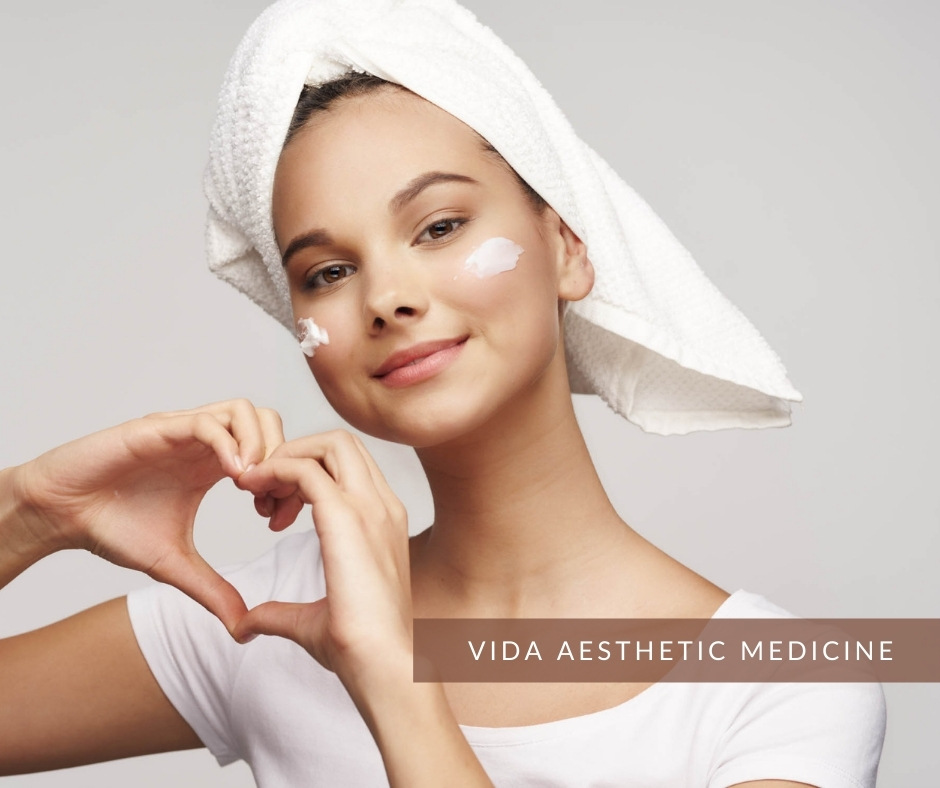Some procedures only “work” in one way—consider facelifts, for example. These surgeries trim away excess skin to tighten the skin, but they don’t do anything for the actual skin quality (such as brown spots) and they don’t work holistically to stimulate collagen production. VIDA is committed to providing you with the best, non-surgical treatments to achieve your skin care goals. We are more than a medspa. Led by Medical Director Dr. Talebi, who personally trains every staff member, we’re proud to serve you as the leading clinic in the region for chemical peels, laser skin rejuvenation, and much more.
Unlike other treatments, chemical peels work in multiple ways. First, they literally peel away the top layer or layers of skin. This removes superficial flaws such as fine lines and wrinkles, light scarring (including acne scarring), and superficial brown spots, age spots, and hyperpigmentation. In many cases, the top layer of skin is where these imperfections are situated, and although the skin does have a natural exfoliation process it’s just not as aggressive as is needed for rejuvenation. Only a chemical peel applied by a professional can safely, evenly, and effectively remove these skin layers.
Understanding Chemical Peels
In years past, a deep chemical peel was considered the only way to achieve youthful skin. This has changed. Today, typically only light/superficial or medium-depth peels are needed, both of which are available at VIDA. Deep chemical peels still exist, but are usually reserved for very severe cases. Deep peels are painful, often requiring anesthesia or “going under.” There is also a long healing process with deep peels where skin looks so inflamed that most people don’t want to leave the house or be on Zoom for days or even weeks. There is still a place for deep peels, but the vast majority of people don’t need them thanks to the innovations and effectiveness of light and medium peels.
When you’re preparing for a chemical peel at VIDA, you’ll be provided with a list of before and after care instructions. One of the most important things to remember is to avoid the sun when you can before and after your treatment. Post-chemical peel, your skin is truly “new,” which means it isn’t capable of handling UV rays well. This is also a great time to revamp and recommit to your sunscreen regimen. Some topicals, such as retinols, may also need to be stopped (under the guidance of your doctor) prior to some peels.
Every chemical peel is different and custom-selected for your skin type, needs, and goals. There are chemical peels for all skin tones, and even all-organic options. After all, many ingredients found in chemical peels inherently come from nature. “Early” chemical peels from thousands of years ago often used citrus fruits and milk, so as you can see the foundation for chemical peels is centuries-old.
The Inward Process of Chemical Peels
Chemical peels aren’t just a surface treatment, though surface results are the ones you’ll first see. Chemical peels also work by stimulating collagen production, which is your body’s natural fountain of youth. Some controlled injuries, including chemical peels and microneedling, “tell” the body to start making more collagen in specific areas. We all slow down our collagen production as we get older, but the great news is that we can also control it. Not every injury is going to produce even, sustained collagen production. This is why it’s important to harness collagen production in collaboration with a skilled professional.
So, what does more collagen production actually mean? The results of your chemical peel will extend well past the initial healing stage. Clients love peels because they can see results right away. A light peel requires virtually no downtime, though you will look a little pink afterward. A medium-depth peel often presents with some minor flaking about 3 – 10 days post-treatment, but most clients don’t find this interferes with their daily life. This means you’ll be able to enjoy results as soon as one week after the treatment—but collagen production will continue for months afterward.
Ready for your chemical peel consultation? Contact VIDA today by calling the office at (503) 399-0021 or fill out the online form for the fastest response.




